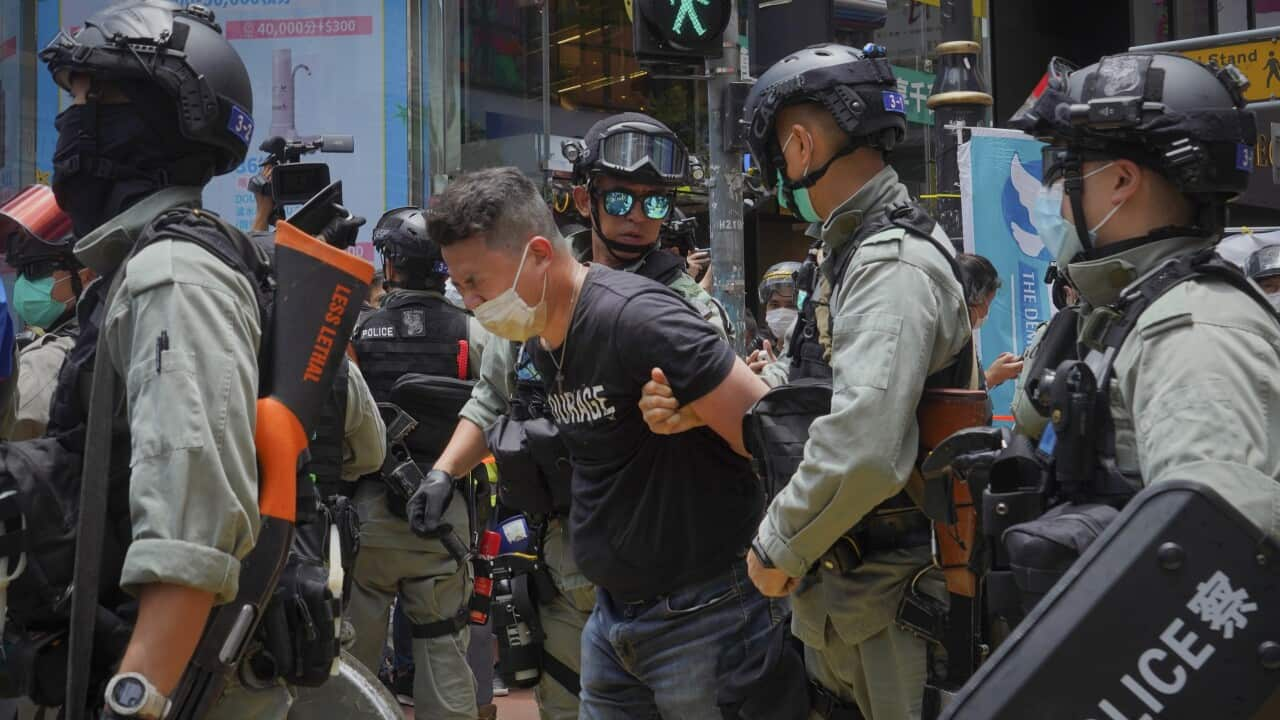A man accused of deliberately driving his motorbike into a group of police officers became the first person in Hong Kong to be charged under Beijing's sweeping new national security law on Friday.
Tong Ying-kit, 23, was hit with one charge of inciting secession and one charge of terrorism, according to a court document obtained by AFP.
A police source said Mr Tong drove his motorbike into a group of police officers on Wednesday during protests against the security law. The source asked for anonymity in order to be able to speak freely. An earlier police statement gave the suspect's age as 24.
The source asked for anonymity in order to be able to speak freely. An earlier police statement gave the suspect's age as 24.

Hong Kong police officers pinning down a protester during Wednesday’s demonstration. Source: Getty
Mr Tong was arrested on Wednesday when thousands defied a ban on rallies to protest against Beijing's new law, which was imposed a day earlier and has swiftly begun curtailing some political freedoms.
Video footage captured by local television that day showed a man on an orange motorbike with a flag that declared "Liberate Hong Kong, Revolution of our Times" on the back.
He turned down a side street and drove into a group of riot police.
Bystander footage shot on a mobile phone captured a scene moments later, where the man was swiftly detained after he fell to the ground.
Police at the time said three officers were wounded.
Mr Tong was not in court to hear the charges. A defence barrister said he remained in hospital with a fracture.
The charge sheet said Mr Tong "incited other persons" to commit secession and that his offence constituted terrorism because it was aimed at "coercing" the Chinese and Hong Kong governments and "intended to cause grave harm to society".
Beijing's new security law was kept secret until it was enacted, sending fear coursing through the city both for how it was imposed and the strangling of free speech provisions it contains.
It outlaws various acts viewed as subversion, secession, terrorism and colluding with foreign forces.
But legal experts warn it also proscribes even peaceful political views.
Hong Kong's government, for example, have announced that using the phrase "Liberate Hong Kong, Revolution of our times" is illegal under the secession and subversion provisions.
The terrorism offences are broad and include attacks on vehicles or transport networks and "using dangerous methods to seriously endanger public health or safety".
The most serious security law offences carry punishments of life imprisonment.










